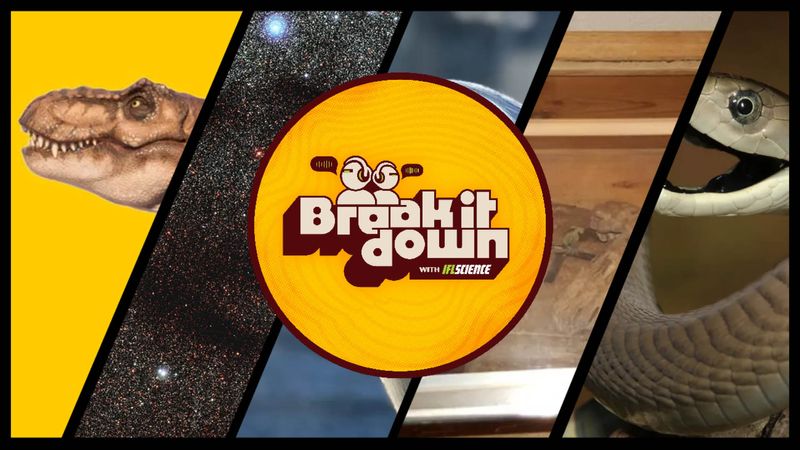This week, we delve into the fossilized remains of an 113-million-year-old “hell ant” discovered in Brazil, the oldest ant known to science. We explore the peculiar case of Pope Pius XII's embalming mishap, which led to an unexpected and explosive outcome. We examine how a solar “terminator” event may have disrupted SpaceX's Starlink satellites, and introduce a synthetic “power bar” designed to sustain bee colonies without natural pollen.
Create an IFLScience account to get all the biggest science news delivered straight to your inbox every Wednesday and Saturday.
First Ever Evidence Of Roman Gladiators Fighting Lions Discovered In Britain
A Roman-era skeleton from York, northern England, shows signs of having been bitten by a big cat, thus providing the first archaeological evidence that gladiators did battle with lions and other terrifying beasts. Previously, these fabled human-animal contests were only known from written and artistic sources, leading many scholars to question whether the brutal encounters actually took place. Read more here
Scientists Are Tattooing Tardigrades Because Why Not
At half a millimeter long (0.02 inches), tardigrades are so small they’re hard to see without a microscope. However, these adorable eight-legged creatures still have room for tattoos on their bodies, scientists have demonstrated, and the work could lead to medical applications, much as it may sound like the product of bored minds. Read more here
Planet Being Boiled Apart Like A Comet Sheds Mount Everest's Worth Of Material Every Orbit
Planet BD+054868Ab is one of only four known disintegrating planets, worlds close enough to their star that they end up being roasted and torn apart. But this little world is unique in the extent of this process; it has the longest tail of any such planet. Yes, these worlds form a comet-like tail of materials evaporating away, and this one is losing the equivalent of Mount Everest to space every single orbit. Read more here
What Happens When Your Mind Goes Blank? It Could Be Your Brain In “Local Sleep”
You know that feeling when your mind goes blank? One minute you’re happily getting on with something; the next, it’s like all the thoughts have just fallen out of your head. A new study is helping uncover what’s actually going on inside our brains when this happens, including why some of us experience it much more often than others. Read more here
Newly Discovered “Bone Collector” Caterpillar Wears The Bodies Of Its Prey Like A Serial Killer
Extraordinary behavior has been reported in a species of Hyposmocoma caterpillars. Although the species is yet to be given a scientific name, the team that discovered its behavior call it the "bone collector" caterpillar for the way it will wear pieces of its prey’s bodies as if as trophies. Read more here
TWIS is published weekly on our Linkedin page, join us there for even more content.
Feature of the week:
5 Health Problems Caused By Tobacco Use That Aren't Lung Cancer
Lung cancer might be one of the most well-known potential consequences of using tobacco, but it’s far from the only health problem that’s been linked to it. In fact, tobacco use can affect nearly every organ in the body – so what other conditions can it cause? Read more here.
More content:
Have you seen our e-magazine, CURIOUS? Issue 33 April 2025 is available now. This month we asked, “Do Animals Make Art?” – check it out for exclusive interviews, book excerpts, long reads, and more.
PLUS, the We Have Questions podcast – an audio version of our coveted CURIOUS e-magazine column – continues. In episode 8, we ask, “What Happens To Eyes During The Mummification Process?”
Season 4 of IFLScience's The Big Questions podcast has concluded. To revisit all of season four’s episodes, click here.




